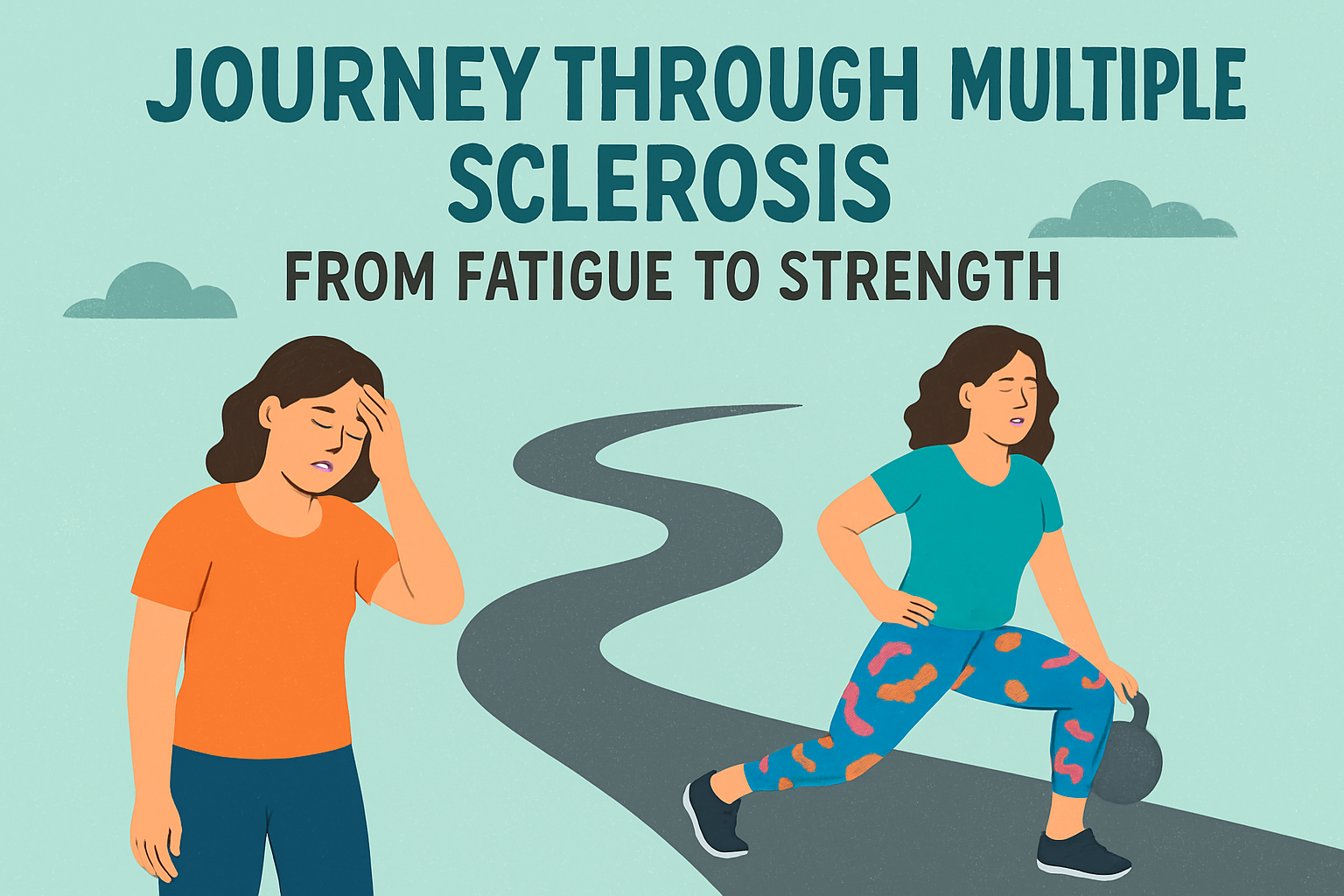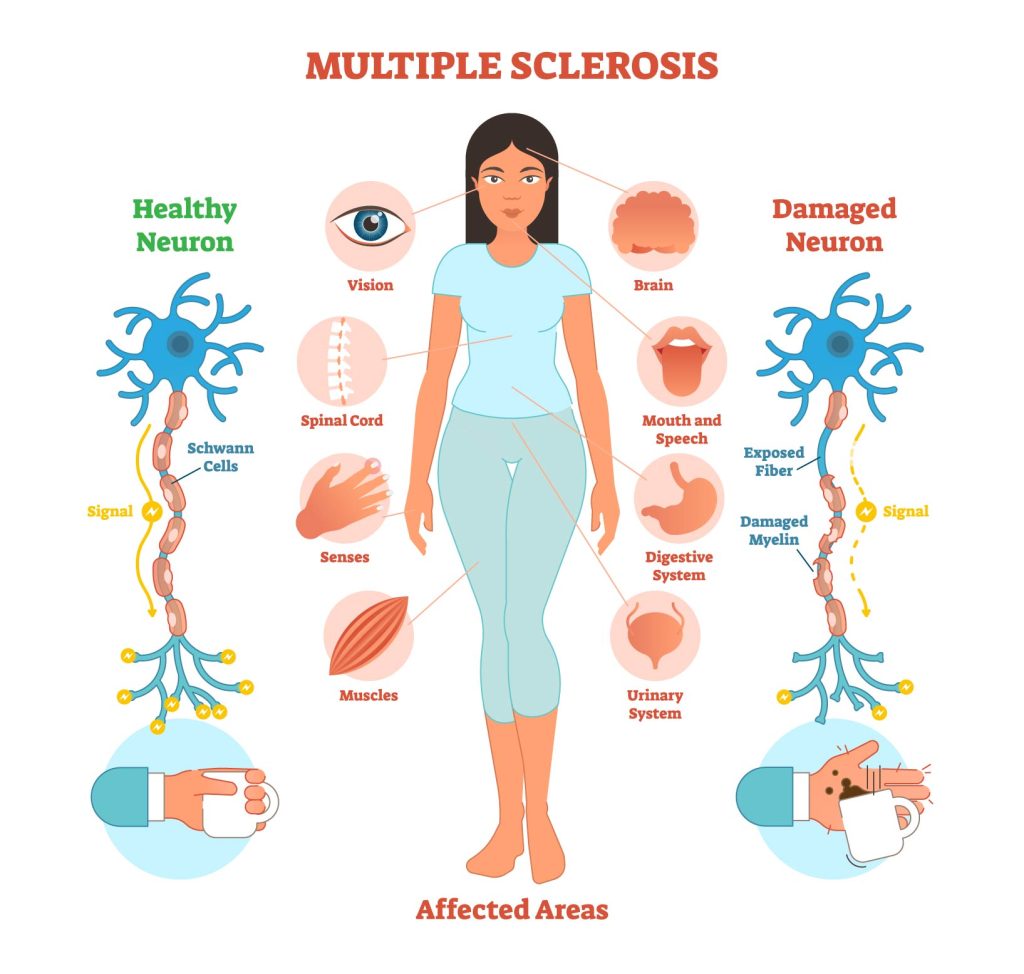Multiple sclerosis (MS) is a long-term condition that affects the brain and spinal cord. The immune system mistakenly attacks the protective covering around nerves, leading to damage and scarring. As a result, brain-to-body messages are interrupted, which affects both the body and the mind.
Common Symptoms of Multiple Sclerosis
MS can look different for everyone, but many people experience:
- Fatigue (extreme tiredness)
- Muscle weakness
- Balance problems and dizziness
- Difficulty walking or moving around
- Memory and thinking challenges
How Do Physiotherapists Measure Symptoms?
To track your progress and tailor treatment plans, physiotherapists commonly use these simple yet effective tests:
- MS Impact Scale / Fatigue Impact Scale: Measures how MS or fatigue affects your daily activities and mental state
- 30 Second Sit-to-Stand Test: Assesses leg strength by counting how many times you can stand from a chair in 30 seconds
- Mini-BESTest: Evaluates balance and mobility in different situations
- Timed Up and Go Test: Measures your risk of falls while moving about
- 10 Metre Walk Test: Measures walking speed and step quality
How Can Physiotherapists Help?
- Fight Fatigue
- Teach energy-saving strategies, like pacing activities throughout the day
- Introduce aerobic exercises, which improve sleep quality and energy levels
- Build Muscle Strength
- Guide you through strengthening exercises that target weak muscles
- Teach breathing exercises to strengthen muscles used for breathing
- Improve Balance and Prevent Falls
- Prescribe traditional balance exercises or vestibular training, which includes eye and head movement
- Restore and Maintain Mobility
- Support you to stand and walk as much as possible, which improves muscle strength, bone health, and blood circulation
Need Support?
If you or a loved one is living with Multiple Sclerosis, our physiotherapists at The Body Refinery, in New Farm, are here to help.
We offer personalised treatment plans based on your needs and goals — whether that’s walking more confidently, staying independent, or simply improving your day-to-day comfort.
Written by Physiotherapist Meng



